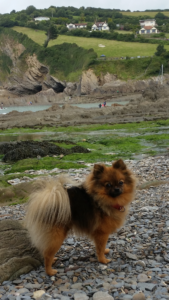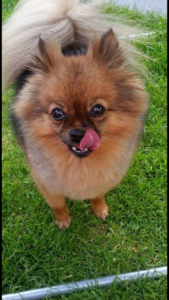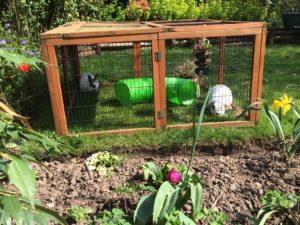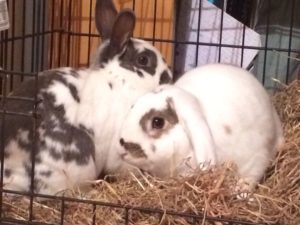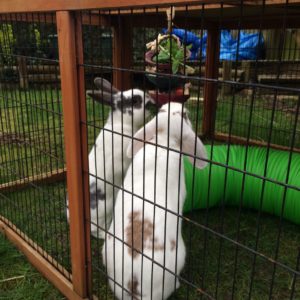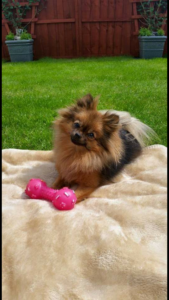 Aysia is gorgeous little Pomeranian who came down to us as an emergency one evening. She had been jumped on by another dog and afterwards her owners had noticed a problem with her eye. They rushed her straight down to be examined.
Aysia is gorgeous little Pomeranian who came down to us as an emergency one evening. She had been jumped on by another dog and afterwards her owners had noticed a problem with her eye. They rushed her straight down to be examined.
Aysia’s left eye was hanging out of it’s socket. This is known as a prolapsed globe. The attachments at the back of the eye had become loose and strain was placed onto the optic nerve. Thankfully Aysia had no other injuries but her eye was of real concern and required emergency treatment. The longer the eye was out for, the greater the risk of blindness in that eye.
Unfortunately the eye had come too far out for us to replace it easily and so Aysia was admitted to the hospital. She was given pain relief and sedated whilst we tried gentle manipulation of the eye to see if it would go back in with Aysia more relaxed. Unfortunately too much swelling around the eye had occurred and so it would no longer fit back in. We would have to try and replace the eye under a general anaesthetic; to do this we made a cut at the edge of the eyelids to extend them outwards and widen the eye opening. This allowed us to pop the eye back into the socket.
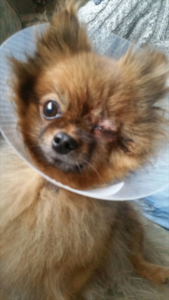 Aysia’s eyelids were sutured close to keep her eye from coming straight back out again, taking care to ensure the suture did not rub on the surface of her eye. Despite the surgery, there was a risk that Aysia’s sight would be permanently lost and we would not know for sure until we removed the sutures in two weeks’ time. Aysia was discharged on a course of antibiotics and pain relief. She also had to wear a buster collar to stop her rubbing at her eye.
Aysia’s eyelids were sutured close to keep her eye from coming straight back out again, taking care to ensure the suture did not rub on the surface of her eye. Despite the surgery, there was a risk that Aysia’s sight would be permanently lost and we would not know for sure until we removed the sutures in two weeks’ time. Aysia was discharged on a course of antibiotics and pain relief. She also had to wear a buster collar to stop her rubbing at her eye.
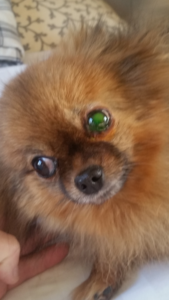 We initially checked Aysia back a few days after the procedure and she seemed very comfortable. We then saw her two weeks after the surgery and removed the sutures. She was such a brave girl we were able to do this conscious. Thankfully her eye stayed in place and she could see!
We initially checked Aysia back a few days after the procedure and she seemed very comfortable. We then saw her two weeks after the surgery and removed the sutures. She was such a brave girl we were able to do this conscious. Thankfully her eye stayed in place and she could see!
She had an ulcer on the surface of her eye (the cornea) shown by the green dye. This was likely sustained at the time of injury. We treated that with some eye drops for a week and it resolved without any further complications. Aysia was a really good girl and we are so pleased to have such a positive outcome for her.

